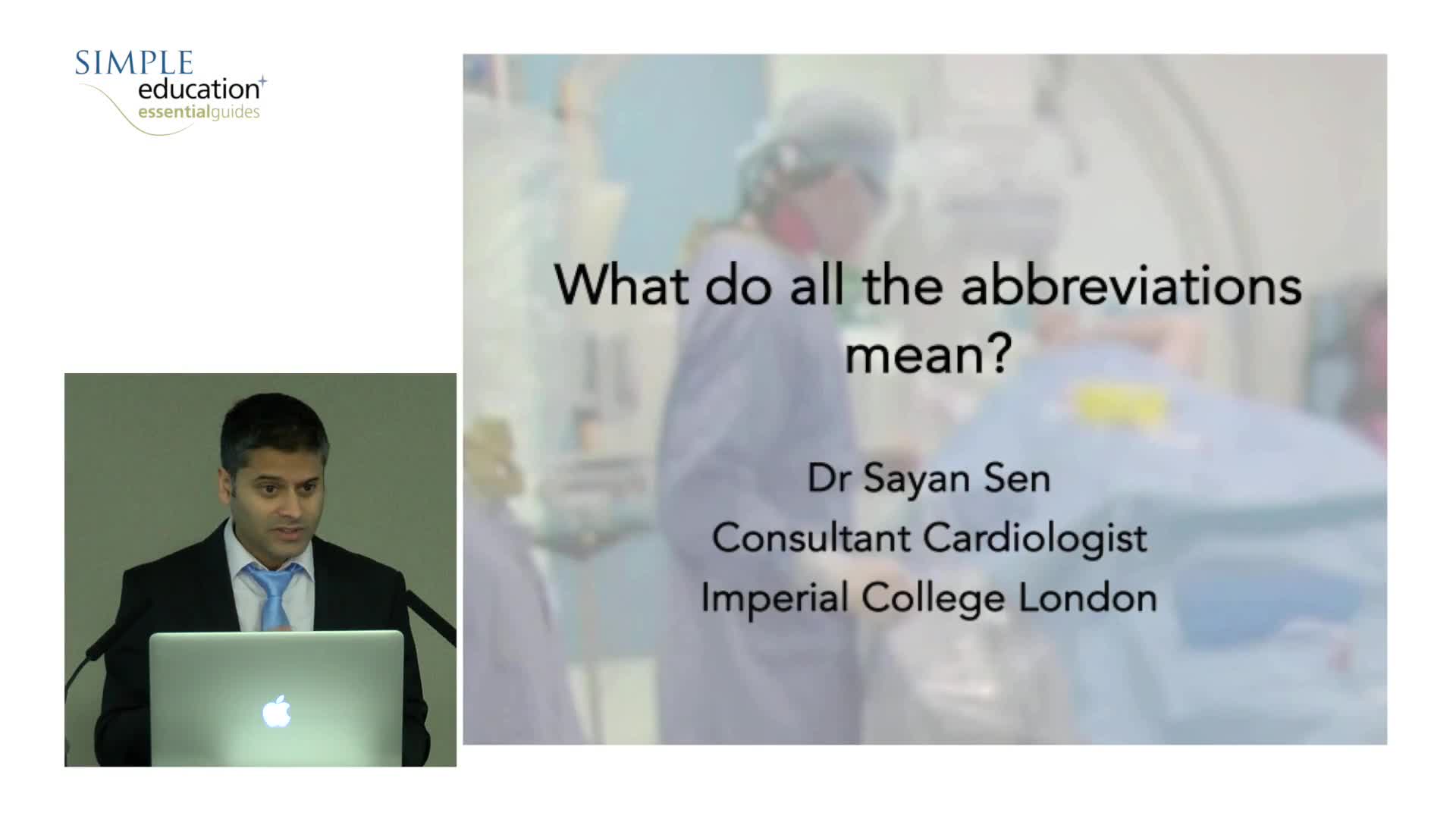- Coronary Physiology
- Instantaneous wave-Free Ratio (iFR)
- Aortic Stenosis (AS)
- Atrial Fibrillation
- Fractional Flow Reserve (FFR)
Measuring iFR in Aortic Stenotic, Atrial fibrillation, and Chronic Heart Failure
Simple Education, is a leading provider of coronary physiology and intracoronary imaging courses to aid treatment of complex coronary artery disease.
Speakers
Dr Justin Davies is a board member of Monaco Cardio at the Princess Grace Hospital, Monaco, and... Dr Justin Davies is a board member of Monaco Cardio at the Princess Grace Hospital, Monaco, and an interventional cardiologist with over 15 years of experience as a leading educator in the field. His clinical and academic career was established at Hammersmith Hospital, Imperial College London, where he built an international reputation for innovation in cardiovascular medicine. Over the course of his career, he has successfully mentored 15 PhD students, published more than 500 peer-reviewed papers — including landmark studies in the New England Journal of Medicine and The Lancet — and holds 20 patents in cardiovascular medicine and technology. He was the co-principal investigator of the DEFINE-FLAIR study, which helped establish iFR (Instantaneous Wave-Free Ratio), a diagnostic technique he invented, as a globally adopted standard in coronary physiology. His work reflects a unique blend of scientific innovation, academic leadership, and clinical excellence. In addition to his research and academic commitments, Justin is CEO of Cerebria AI, where he leads the development of next-generation AI-powered cardiovascular imaging and physiology tools. Under his leadership, Cerebria AI is advancing cutting-edge solutions that integrate artificial intelligence with frontline cardiology to enhance clinical decision-making and patient outcomes. Combining deep clinical expertise with entrepreneurial vision, he continues to guide international ventures through funding, regulatory pathways, and commercialization, while remaining committed to transforming cardiovascular care on a global scale.
Dr Sukhjinder Nijjer is a Consultant Cardiologist and Honorary Senior Clinical Lecturer at... Dr Sukhjinder Nijjer is a Consultant Cardiologist and Honorary Senior Clinical Lecturer at Imperial College London. He is the President of Cardiology at the Royal Society of Medicine and is the Communication Lead for the British Cardiovascular Intervention Society. He works at the Hammersmith Hospital as an Interventional Cardiologist and is an expert in Coronary Physiology. His PhD research focused on the development of instantaneous wave-free ratio (iFR) pullback and co-registration. He has published over 100 original academic papers and has involved in the DEFINE-FLAIR, SYNTAX-II and ORBITA-1 and ORBITA-2 research studies.
Dr Ricardo Petraco is a NIHR Lecturer in interventional Cardiology at Imperial College London,... Dr Ricardo Petraco is a NIHR Lecturer in interventional Cardiology at Imperial College London, performing his clinical work at Hammersmith Hospital. He has been working with coronary physiology at Imperial since 2010 on the development of the novel instantaneous wave-Free Ratio (iFR). Dr Petraco’s work with iFR has led to the proposition of the Hybrid iFR-FFR approach and has established iFR’s close relationship with coronary flow reserve (CFR). His interests in computer programming has led to the development of a software for automated analysis of coronary haemodynamics signals which is been used by many leading centres in the world. He has also pioneered the algorithm for iFR calculation without the need for an ECG signal, an approach which is now implemented in clinical consoles. He has secured several research grants and published extensively in the field of coronary physiology. His current research interests are on the development of methodologies to assess stenosis severity in situations of haemodynamic instability and on the understanding of how medical therapies modulate coronary resistance and flow. Clinically, his interests also include the use of intravascular imaging modalities to optimise PCI and has been engaged in IVUS training for cathlab staff and cardiology trainees.
Prof Andrew Sharp qualified from Edinburgh Medical School in 1998 and is Professor of Cardiology... Prof Andrew Sharp qualified from Edinburgh Medical School in 1998 and is Professor of Cardiology at the University Hospital of Wales and Cardiff University in the U.K. He conducted his early training at the Royal Infirmary of Edinburgh, before moving to London for his senior clinical training. He completed the prestigious Milan-Imperial Interventional Cardiology Fellowship programme, having spent a year in San Raffaele and Columbus Hospitals, Milan, Italy, under the tutelage of Professor Antonio Colombo. He also spent three years training in interventional cardiology at Imperial College Hospitals in London. Prof Sharp was awarded an MD postgraduate research degree from the University of Edinburgh for his work on the hypertensive heart and his research interests include intracoronary imaging and physiology. as well as the use of device-based treatments for hypertension and pulmonary embolism.












